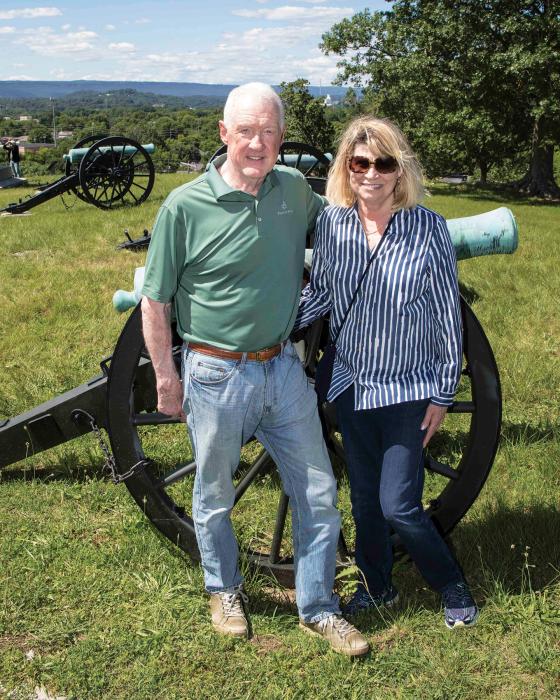Lt. Gen. Richard Mills (Ret.)

The members of the American Battlefield Trust’s Board each possess unique skills and background they can apply to our work. One Trustee, in particular, has a deep and abiding understanding of the importance that a preserved battlefield can have as a memorial to American soldiers, having commanded Marines in combat zones in Kosovo, Iraq and Afghanistan —Lt. Gen. Richard P. Mills.
The New York native received his commission as a second lieutenant in 1975 and held a variety of roles as he rose through the ranks, including an official military observer with the United Nations in Palestine, on the staff of the commander of the United States Sixth Fleet and as assistant chief of staff to the United States European Command in Stuttgart, Germany. Over the course of his career, Mills has engaged in numerous periods of specialized study, including at the Marine Corps Command and Staff College and the UK Royal College of Defense Studies.
Now retired from the military, Mills is the president and CEO of the Marine Corps University Foundation, a nonprofit organization dedicated to promoting the professional education of officers and enlisted Marines, both at the university’s headquarters at Quantico, Va., and other bases. The foundation seeks to provide outstanding training in security and war fighting systems and to train the next generation of Marine leadership. Some of the organization’s achievements include working to provide cutting-edge library technology that allows information sharing and dissemination across the globe and the establishment of academic positions for research and teaching.
The foundation also financially supports the Marine Corp’s use of staff rides as a training tool for officers. Mills is a tremendous advocate for this proud tradition, which led him to first become involved with the American Battlefield Trust during its efforts to advocate on behalf of the Revolutionary War’s Princeton Battlefield. Appreciating the Trust’s mission, his involvement quickly deepened, and he joined the Board in early 2017.
“So many veterans like myself look over our shoulders for inspiration from past triumphs on past battlefields,”Mills told Stars and Stripes, a military publication, during the Princeton controversy. “More importantly, it is crucial that we take our young people to these battlefields. Only then can they really get a feel for our history. The battlefield, as an outdoor classroom, reveals its subtle dips and depressions, places that provided mere inches of life-saving cover during an enemy volley. Only on a preserved battlefield itself can you walk the walk. That’s why it’s so important to save hallowed ground.”
Through Mills, the Trust and the Marine Corps University have formed a more permanent partnership, including standing arrangements related to use of Trust properties for staff rides.
Meanwhile, Mills has leveraged the tremendous authority afforded him by his joint positions to amplify his own advocacy for on-the-ground military education and appreciation of battlefield land, publishing his views in both the Richmond Times Dispatch and the Fredericksburg Free-Lance Star already this year.
“In this age of tanks, helicopters, jets, rockets and drones, how can we learn from a battle fought on horseback or on foot? When you take it down to the basic principles, war hasn’t changed,”he wrote, demonstrating his unique understanding of both history and the modern military. “The training touches a deeper chord, too. We use history to build the values and traditions of military service and reinforce its discipline and standards. The history ... helps us instill unit cohesion and unit pride. You stand up to the challenge because the soldiers on both sides of you stood up.”